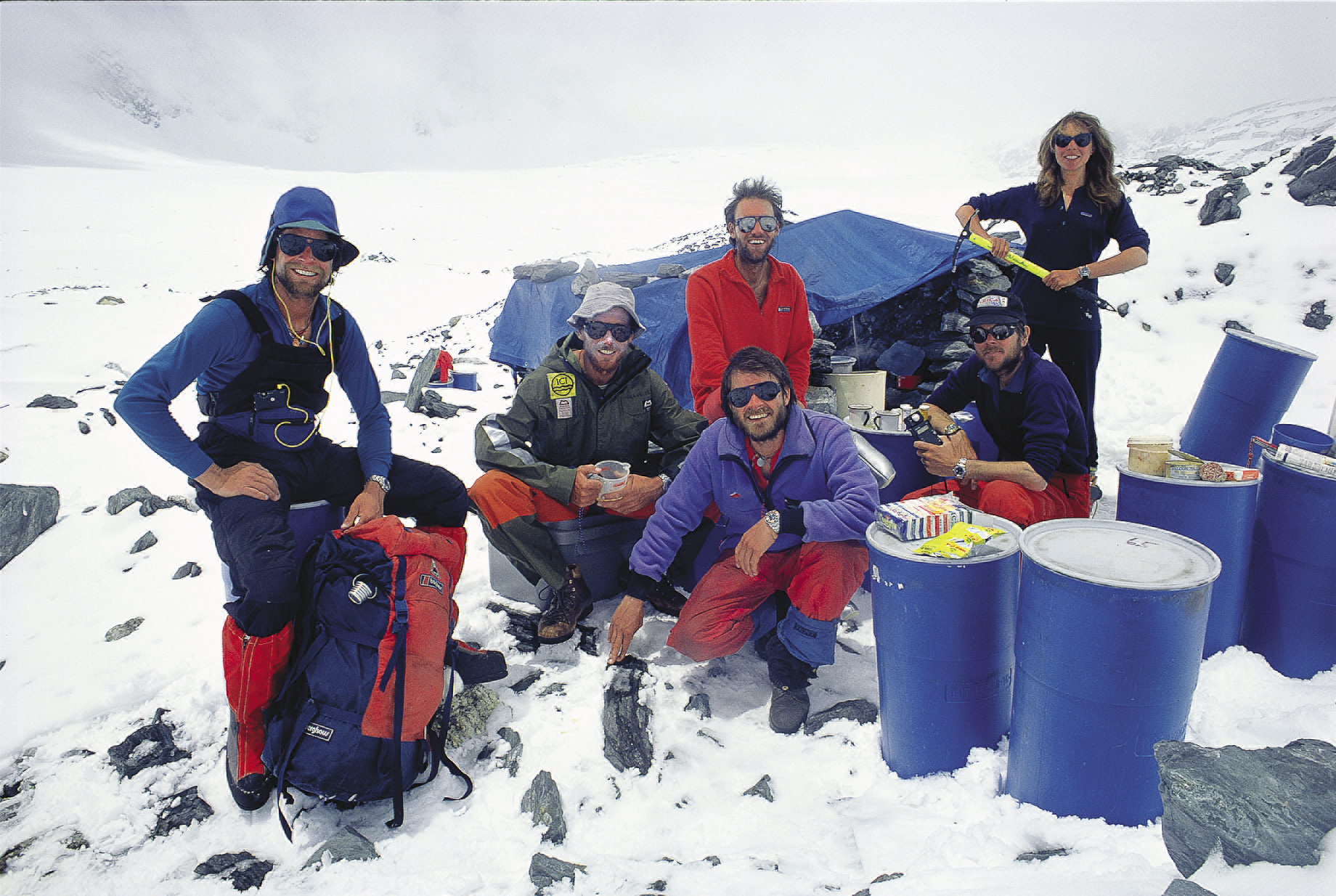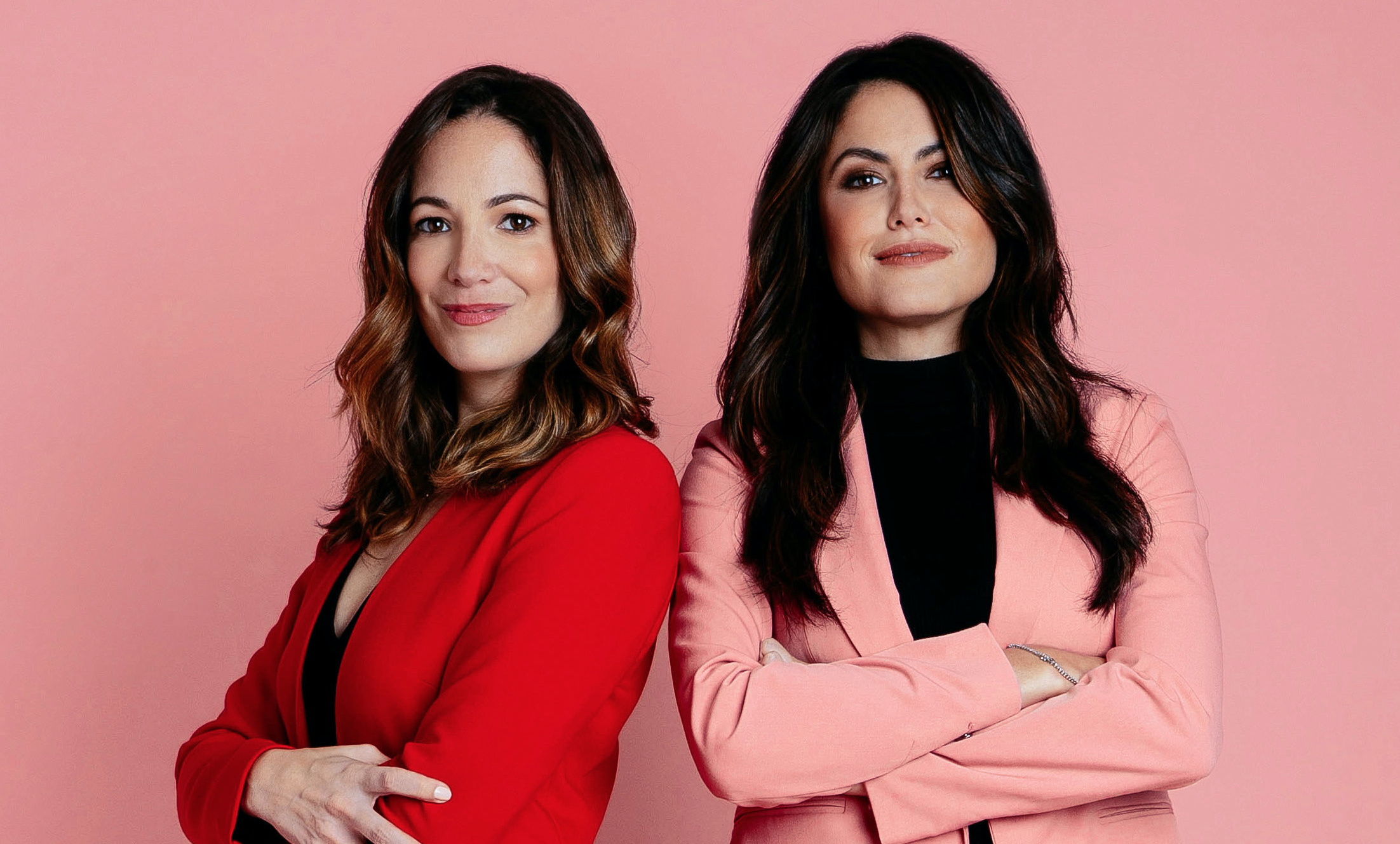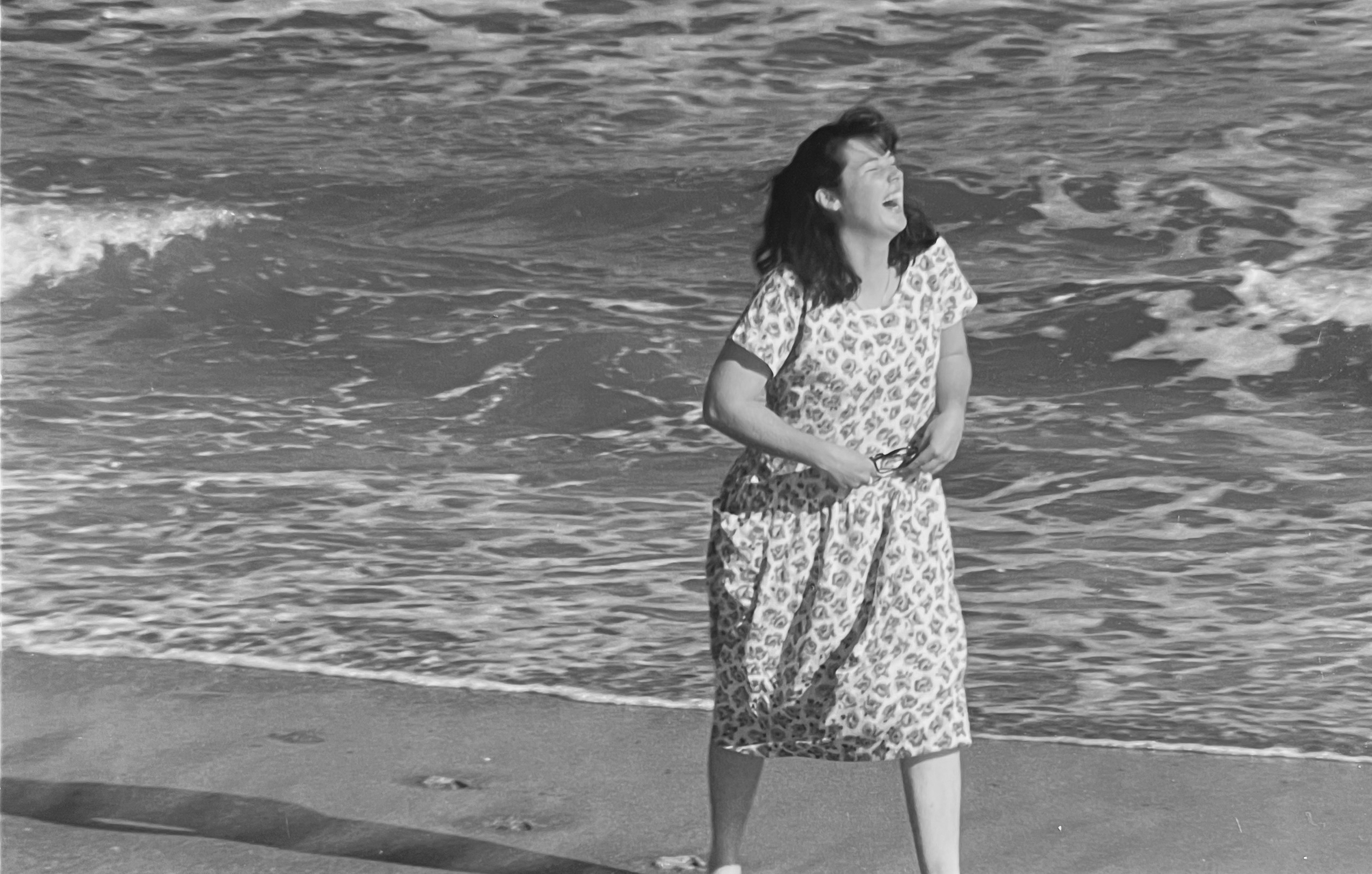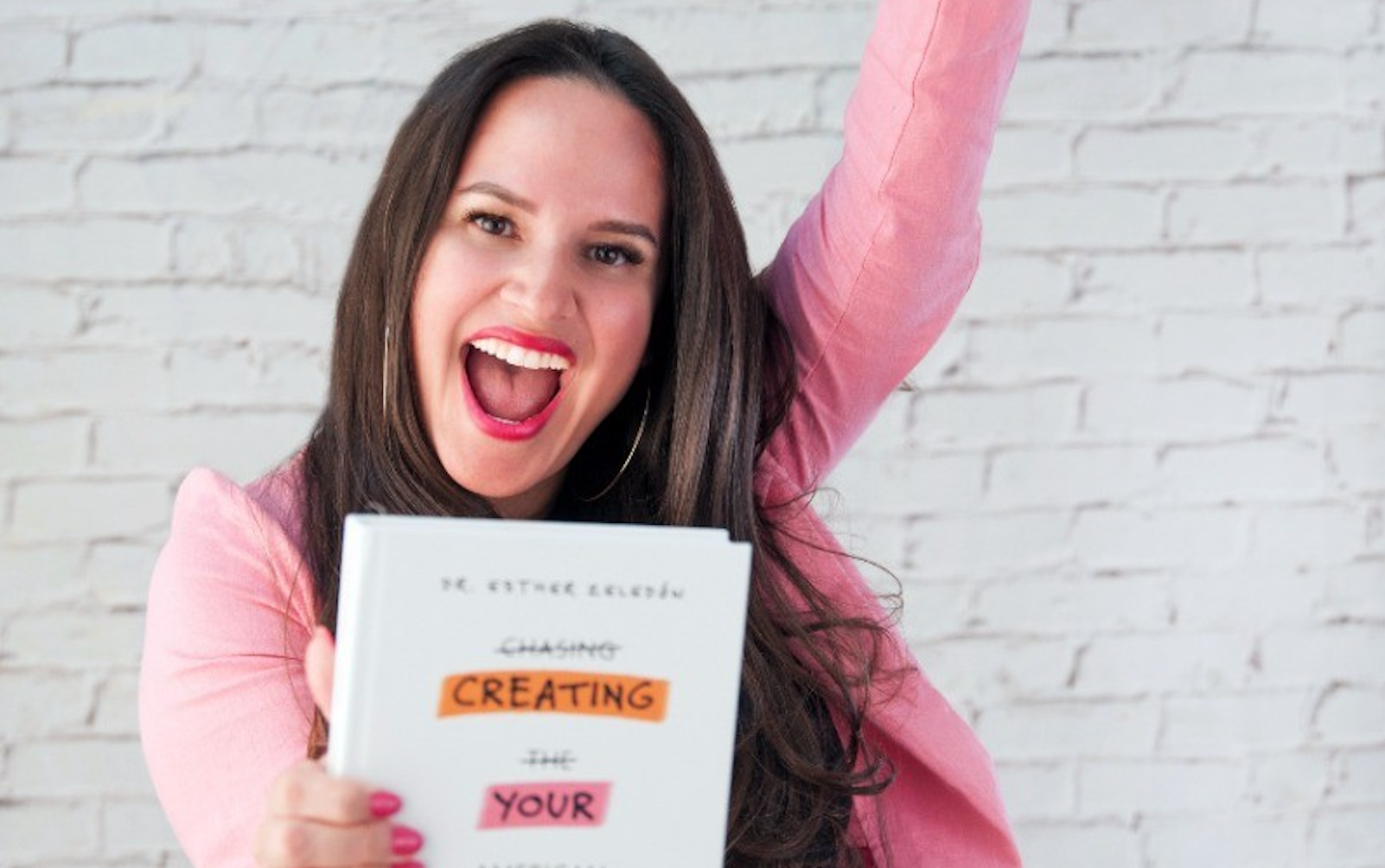
In a world where a 42% “orgasm gap” exists between men and women, it is imperative to open up a meaningful and frank conversations about the pressures and insecurities women experience when it comes to the big O. Research in the ‘Archives of Sexual Behavior’ found that while 75% of heterosexual men always orgasm during sex, only 33% of heterosexual women do. Let that sink in. Thirty-three percent.
That’s staggering—but so too is the 42% divide between men and women. Author and content creator Paulette Stout has been called “ice queen” and “frigid” by past boyfriends and lovers because she was unable to orgasm during sex. These labels and the trauma of feeling “less than” are damaging. After seeking help from her doctor, participating in an embarrassing and radical medical research study, visiting a masturbation coach and meeting a dreamy new guy across the hall, Paulette put herself and her story out for all the world to see in her new novel, ‘Love, Only Better’.
For Rebecca, sex is a joke missing a punchline. No crashing waves. Only pangs of inadequacy. At twenty-eight, shouldn’t she have had one by now? Her snickering ex thought so. His taunts echo in her ears as he rolls out of her bed. Then out of her life. Lost, Rebecca seeks expert help, joining a study for women who can’t “finish” in the bedroom. Who’d want to be with her anyway?
Then Kyle moves in. Her blue-eyed, black motorcycle-riding dream of a neighbor lives a heartbeat away. Sparks flew immediately. But could the timing be any worse? If he learns her secret, she’ll lose her best chance at love. But if her lessons fail, she’ll be left eternally broken.
What started as a search for fulfillment, has suddenly become a quest for something far greater. ‘Love, Only Better‘ is an intimate quest full of heart, blending a fun next-door romance with steamy dates-for-one.
It’s time for all the mothers, sisters, cousins, aunts and friends to be open to discussing sex and orgasms with the women in our lives. With those we know to be struggling. With those who feel broken. Sharing, without judgment. Guiding with care and tenderness. The more women we welcome into the realm of sexual fulfillment, the more women will be empowered to achieve greatness in other areas of their lives. These aren’t mere tingles. They’re a catalyst for confidence. They’re a catalyst for personal change.
We had the chance to speak with Paulette about her own journey to sexual confidence, the cultural stigma around women’s sexual pleasure, and what she hopes her book will instill in readers who may come from a similar environment to hers.

How does it feel to have your novel out in the world?
A: It’s beyond gratifying to have the book out, but likewise crazy scary given the subject matter. With so many women struggling sexually, I felt I owed it to them to see this novel through and ensure it was published for the world to read. It became part book, part mission, really. It’s gotten some strong reactions, and that’s fine. It’s good, and something I expected. If people talked about women’s orgasms all the time, it wouldn’t be the taboo topic it is. However, the notes I’m getting from women thanking me for promoting women’s right to pleasure has made the long journey worth it.
Although it is 2021, women’s sexual gratification and pleasure is still so taboo! Why do you think this is?
A: In many ways, I think our society is comfortable thinking of women as vessels for male pleasure. Up to now, our pleasure lives have been largely irrelevant from a cultural perspective. And the education around women’s pleasure is so poor that most women don’t even know what they’re missing. Not really. That makes it essential for women to both learn what we need sexually, and then shed the fear of talking about our sexual selves. Orgasms are one of the most powerful experiences in life and too many women have never had one. We need to normalize the conversation around women’s pleasure, so we can leave the taboo label in the trash where it belongs.
You have shared some of your own story of sexual struggles. Can you tell us a little more, and perhaps where the fear or struggle came from?
A: Being raised by a single dad, I never had any education about what it means to become a woman. For context, I didn’t even know what was happening when my menstruation started, so that’s how clueless I was. When it came to sex, I knew I could get aroused, but the tension would build and fade. The frustration left me feeling empty, shameful, and broken. I figured no one would ever want to be with someone like me, so I was determined to figure the sex thing out. Perhaps, I became obsessed. But sex seemed to be a big deal, so I figured there was something I was missing. And I was right.
Sexual pleasure is so closely tied to sexual health, and of course filters down to the way policy is made, rules are enforced, and how generations of girls grow up learning about their bodies. How can books and stories like ‘Love, Only Better’ be a part of disrupting the negative status quo around sex?
A: With Love, Only Better, I hope to start the conversation and make it okay for women to talk about their pleasure lives and demand more for themselves in bed. I also wanted to provide a how-to primer of sorts, so women can better understand what they need to feel fulfilled. When I was going through this, I would have loved to have had a book like Love, Only Better. My options were limited to dry/clinical or super kinky information. Neither fit the bill, nor did visits to the doctor. Love, Only Better is that sweet spot in the middle where women can get key information they need to feel empowered, wrapped in a fun novel.
There is also the added layer of racism many women of color have to contend with, along with cultural pressure, religious influence, and more. How can open conversations about sex work to expose these layers and potentially dismantle them?
A: There are definitely preconceptions about sex that do play into race and religion. For instance, as a bi-racial Latina woman, men would look at me very much as a sexual object. That label and expectation was doubly frustrating as someone who is smart and independent, yet struggling sexually with the very thing I was presumed to have mastered simply because of the color of my skin. It became a yoke of sorts that was difficult to bear. Being Jewish, there are also different sexual mores that play into our experience as women that relate to the role sex plays in our society. Is sex simply an act to procreate, or is it a powerful bonding experience between sexual partners? In many communities, the former is emphasized over the latter, which leaves many women feeling empty. Open conversations are absolutely essential to affect change across racial and cultural boundaries.
The thought of saying the words “orgasm” or vagina” or “clitoris” or even “masturbation” out loud can be terrifying for many women. How would you encourage women to squash these fears and be empowered in their bodies?
A: If you think about it, so much of the language around sex is negative. It’s nasty, it’s dirty, it’s forbidden. Women’s vaginas are often talked about in negative terms as well. This dark framing doesn’t really create a welcoming place to have vulnerable conversations. Instead, we need to unlearn so much, and begin embracing our bodies, understanding that these words, and others like vulva, are healthy terms that help us understand our intimate selves.
People don’t recoil from male terms like penis, male-masturbation, or “jerking off.” Semen and sperm have been used countless times in movies as jokes. There’s Something About Mary and Good Will Hunting are two acclaimed movies that include male masturbation without blinking an eye. There are countless others. Our culture can play a positive role in promoting these conversations, shifting the negative framing to something more positive, loving, and respectful. Hopefully Love, Only Better can be a step in a healthier direction.
What do you hope readers will relate to most when getting to know Rebecca, your protagonist?
A: Rebecca begins as a vulnerable, insecure woman who really grows into her own. So many of us are just the same, far harsher to ourselves than we’d ever be to someone we care about. Readers say Rebecca’s very relatable, which then challenges each of us to give ourselves more grace.
Additionally, my hope is that in Rebecca, readers find a character they can either sympathize or empathize with. If they have intimacy challenges themselves, I hope they find Rebecca’s journey an empowering one that encourages them to explore their own intimate lives using the techniques in the book. For sexually satisfied readers, I hope they will be more open to having these conversations with the women in their lives who they know to be struggling, letting them know they’re not alone and can absolutely get to a better place.
If there was one piece of advice you could give yourself growing up when you were first learning about sex and sexuality, what would it be?
A: Intimacy is an essential part of life, but it’s also a skill that must be learned. No one pops from the womb knowing how to have an orgasm. Practice the techniques—breathe—and be patient, then bring these skills to your partner experiences. Have fun, and you will absolutely get there.
You can order a copy of ‘Love, Only Better’ and get to know Paulette Stout by clicking HERE.

















